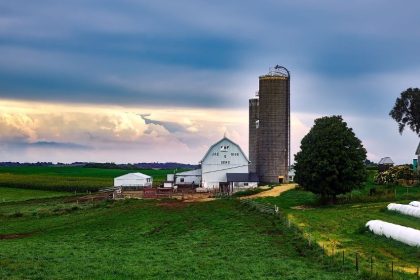Livestock Researchers Awarded $14M from USDA

WASHINGTON – The U.S. Department of Agriculture approved $14 million in investments Wednesday to fund 31 research projects dedicated to disease prevention in agricultural livestock.
The funding comes as a part of the National Institute of Food and Agriculture’s Agriculture and Food Research Initiative, which was established in 2008 as a means of improving food production, stimulating rural economies, and addressing change in an ever-evolving agricultural industry.
“Animal health is critically important to farmers and ranchers,” Dr. Carrie Castille, NIFA director, said. “This research will help better understand, diagnose, control and prevent diseases in agricultural animals and aquaculture.”
The money will help resource projects related to animal vaccinations, diagnostics, antimicrobial alternatives, specialized breeding techniques, and general research on disease mitigation techniques for animals.
While the exact economic loss caused by livestock disease is unknown, the USDA reported in 2015 that, of the 3.9 million cattle and calves lost that year, 98% of cattle and 89% of calves were due to non-predatory reasons like disease.
The $14 million will be distributed among 23 research labs across the nation; with several projects located at Iowa, Florida, Mississippi and Minnesota state universities.
Some examples of these projects are: $500,000 to Iowa State University to use vitamin A and Zinc supplements to protect cattle against stress and respiratory disease; $495,000 to the University of Maine to develop a vaccine to improve disease immunity in farmed Atlantic salmon; and $500,000 to the University of Florida to improve the immunity of pigs against influenza and lung disease.
This $14 million investment follows a $1.1 million small business investment by the USDA in late June. Combined, they represent greater initiative by the federal government to promote technological growth in the food industry, and break down barriers of entry for small businesses in agricultural markets.






















